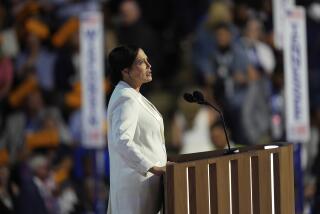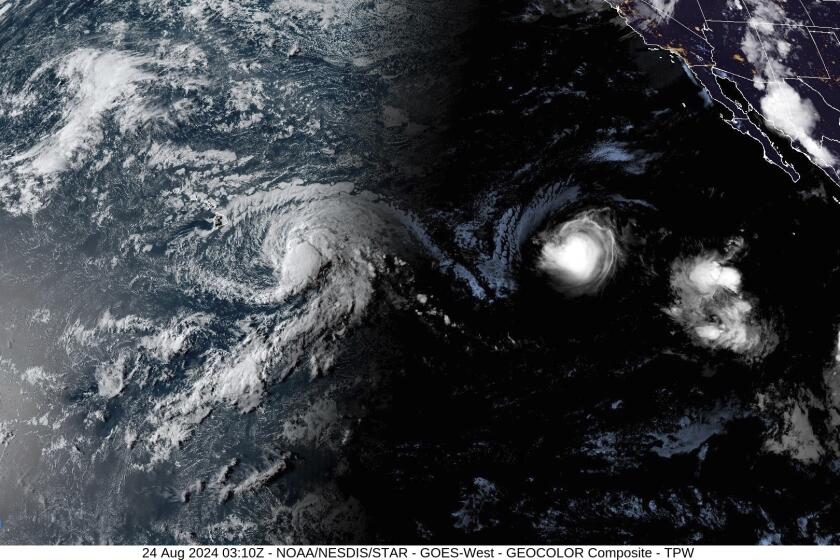Serb Regime Tries to Appease Opposition
Amid signs of disarray in the government of Serbian President Slobodan Milosevic, senior officials tried to placate opposition protesters Saturday by offering to resolve disputed elections quickly.
Two deputy prime ministers promised student leaders that the “will of the citizens” expressed in recent voting will be respected, but they avoided explicit support for opposition victories. Milosevic’s decision to annul municipal elections won by the opposition Nov. 17 sparked a wave of street demonstrations that has shaken the leader’s 10-year-old authoritarian rule.
The government promise, which came after a meeting between a student delegation and Deputy Prime Ministers Ratko Markovic and Nedeljko Sipovac, came as independent newspapers reported a shake-up within Milosevic’s ruling coalition.
Student leaders characterized the government response as receptive, but diplomats cautioned that Milosevic seemed to be offering time-buying placebos that make him appear conciliatory while avoiding concrete recognition of the election results.
“He’s painted himself into a corner,” a Western diplomat said. “He probably realizes his position is untenable, but he’s still not ready to give in.”
As protests continued in the center of Belgrade for the 55th consecutive day Saturday, opposition leaders organizing the street demonstrations also were skeptical.
“We are receiving reports about piecemeal restoration of our election victory,” opposition leader Zoran Djindjic told the crowd of thousands. “But we will not accept that. Our objective is complete reform of this country.”
He characterized the statement released after the students’ meeting as “a lot of nonsense.”
In the statement, the government representatives “agreed it was necessary to fully respect the will of the citizens expressed at local elections.”
“In keeping with this, the government will order the Justice Ministry to demand of competent state bodies, which still have not finished establishing final election results, that they do this urgently.”
The statement does not say that opposition victories will be reinstated.
Still, there were indications from several quarters that Milosevic is trying to find a way out of the crisis that has brought renewed international scorn on his government.
On Saturday, Belgrade was awash in rumors of impending concessions from the government. Independent newspapers reported that Prime Minister Mirko Marjanovic, a close ally of Milosevic’s, had been ousted in a struggle between hard-line and more pragmatic factions of the ruling coalition, while other purges were said to be imminent within the party and the Milosevic-controlled state media.
At a meeting Saturday in Brussels among Western powers, the United States--unable to muster unified international action to pressure Milosevic into recognizing opposition victories--announced its own plans to enact a unilateral trade freeze and other steps.
“The general consensus is that we are not at the point to pursue sanctions” as a group, U.S. Assistant Secretary of State John Kornblum said following a meeting of the Contact Group, which is made up of the United States, Britain, Germany, France, Italy and Russia.
But he said Washington is considering a plan that includes the trade freeze and a boost for “democratization” in Serbia, such as support for independent media.
Times staff writer Tracy Wilkinson in Vienna contributed to this report.
More to Read
Sign up for Essential California
The most important California stories and recommendations in your inbox every morning.
You may occasionally receive promotional content from the Los Angeles Times.






